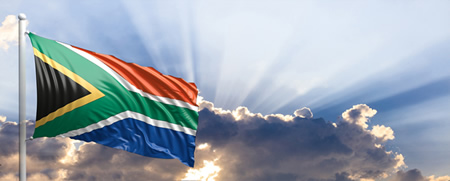
Could local be lekker for the growth of the South African manufacturing and fabrication sectors and as a result, bring the need for homegrown welding skills into sharp focus? That’s the question on many people’s lips as a result of the recently unveiled economic reconstruction and recovery plan in parliament where government announced it was embarking on a massive localisation drive.
Working together with business and labour, Ramaphosa said they would be publishing localisation targets for goods in areas such as agro-processing, health care, basic consumer goods, industrial equipment, construction materials and transport rolling stock. Laws will also be enforced to ensure that locally made materials such as cement, bricks and steel products are used in the building of roads, bridges, power stations, dams and other public infrastructure projects.
Speaking at the announcement President Cyril Ramaphosa said; “South Africa currently imports around R1.1-trillion of goods, excluding oil, each year. If we were to manufacture just 10% of these goods locally, it is estimated that we could add two percentage points to our annual GDP.
“The rest of Africa imports R2.9-trillion worth of manufactured goods from outside the continent each year. If South Africa were to supply just 2% of those goods, it would add 1.2 percentage points to our annual GDP. If the target of R1.2-trillion in new investment by 2023 is met, it could add around 2.5% to annual GDP.
He said an agreement had also been reached with social partners at the National Economic Development and Labour Council (Nedlac). This committed all companies and government entities to publicly disclose in their annual reports the value of goods and services they procure from local producers and to outline extra steps to be taken to improve localisation.
Help may be at hand
So the big question is could these plans provide the South African manufacturing and fabrication sector with the boost they need to emerge out of the current economic quagmire?
SAIW Executive Director John Tarboton feels they could but points out; “The problem in South Africa is that welding and related technologies cannot drive economic growth through industrialisation but they are a necessary condition to enable manufacturing and construction. However, until there is an adequately trained workforce available, many South African companies and welders won’t be able to take advantage of this huge opportunity.”
“Fortunately, The SAIW is developing national welding capabilities, throughout Africa, through local partnerships to drive economic growth through industrialisation by enabling individual qualification, manufacturing and construction.”
An enabling technology
He reports that in light of this, the SAIW has been in talks with the dtic’s Trade Invest Africa around the potential for welding and related technologies to be an enabling technology that allows construction and manufacturing to thrive, promoting industrialisation and economic growth. So, the SAIW is key to their African Strategy.
The SAIW also took part in the follow-up to the recent RSA-Zambia Trade and Invest Seminar (Zambia-South Africa Trade and Investment Task Team: Local Content., Skills Development and Manufacturing Workstream) related to additional discussions around these topics including a list of key sectors where welding could add significant value in terms of its key role in boosting world-class manufacture and fabrication. These include:
- Mining
- Construction
- Oil & Gas (Petrochem)
- Power generation
- Pulp & paper
- Food & beverage processing
- Agro-processing
- Manufacturing
“With skilled welding artisans at hand, South African fabricators and other industrial and manufacturing entities, therefore, have an unprecedented opportunity to thrive, especially within the manufacturing sector where as much as 80% of manufactured products and maintenance requires skilled welders. “
(Source: https://clubofmozambique.com/news/local-is-lekker-for-economic-growth-ramaphosa-174240/)


